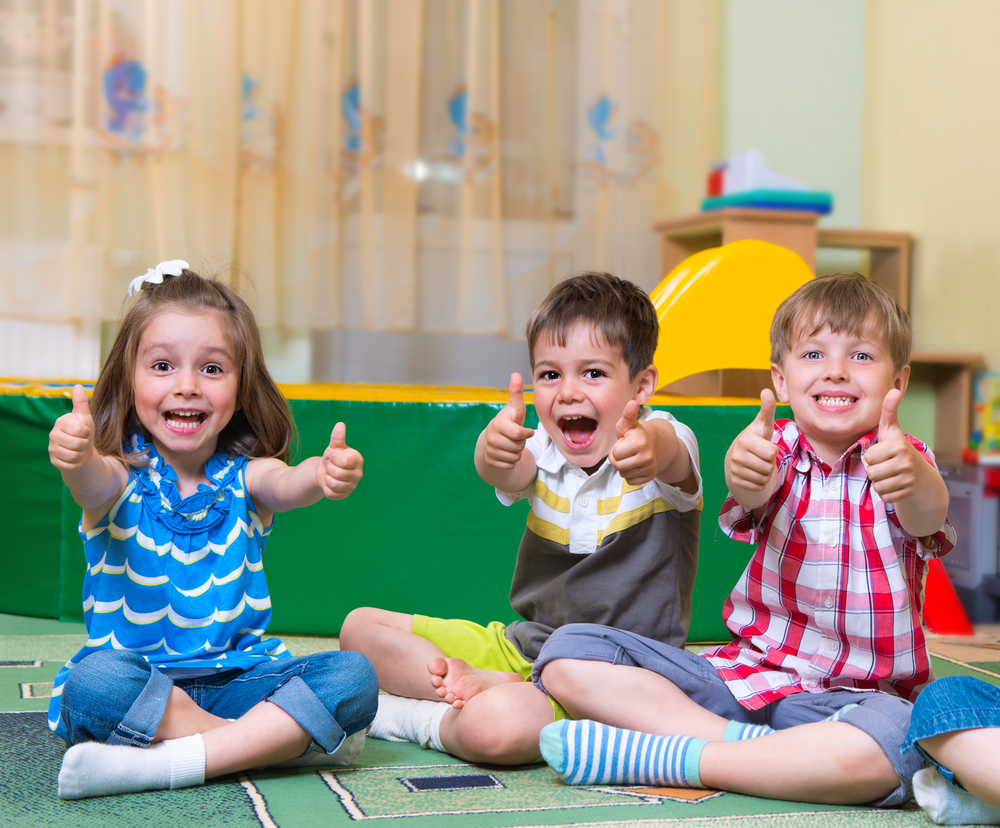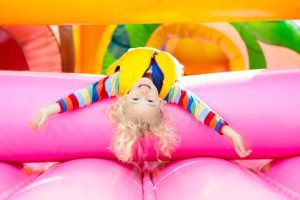Preschoolers are young children aged 3 or 4 years old. At this stage, children are typically ready to enter an early learning educational environment where they can continue their growth and development alongside other kids their age.
The key learning objectives for preschoolers include learning the alphabet, numbers, and how to write their name, as well as social skills like sharing and physical skills like hand-eye coordination.
Check out our full list of important learning objectives for preschoolers.
Table of Contents
Physical learning objectives for preschoolers
Gross motor skills
Preschool is often the first educational experience for young kids, and there’s plenty of playtime combined with valuable learning lessons to prepare them for elementary school.
Preschool activities help children with gross motor skills learn to move their muscles and stay healthy through regular physical activity.
Many preschool teachers use games like hopscotch, charades, and alphabet yoga to get kids moving while engaging their minds at the same time.
Fine motor skills
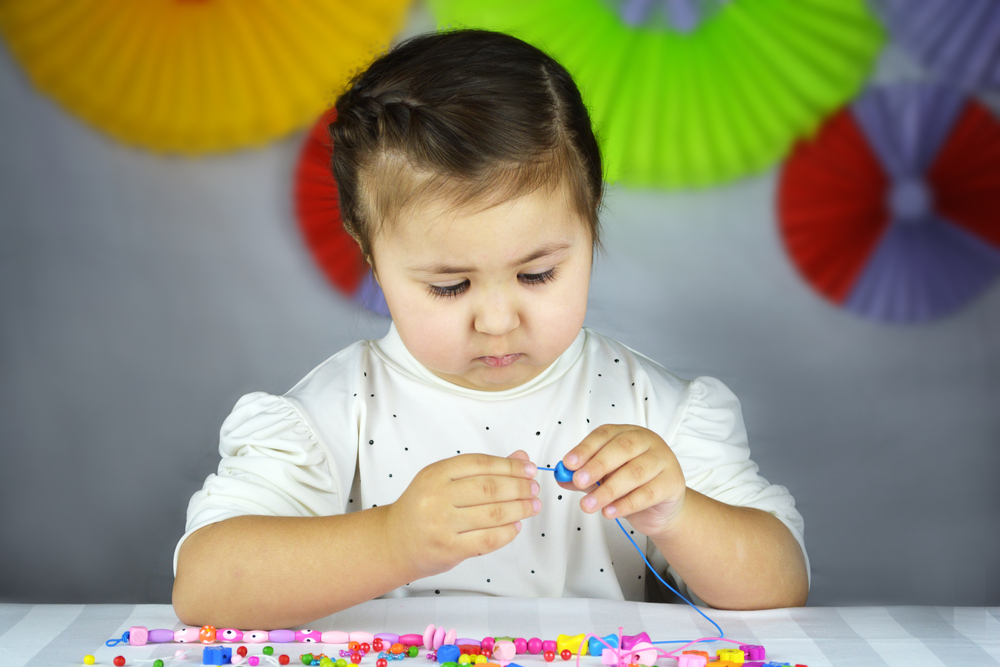
Gross motor skills cover large limb movements of the arms and legs, while fine motor skills focus on smaller movements of the hands and fingers.
Fine motor skills are crucial for children’s development as they will use these skills every day, especially for normal daily tasks like writing, cooking, eating, and personal hygiene.
Popular preschool activities to develop fine motor skills include:
- Stacking cups
- Building blocks
- Making pasta necklaces
- Cutting cardboard shapes
- Using string, beads, and pipe cleaners
Hand-eye coordination
Another important learning objective for preschoolers is hand-eye coordination, which accompanies motor skills development.
The hand and eye need to move together to complete everyday tasks, so preschool teachers will encourage kids to practice through arts and crafts and physical activities like throwing and catching a ball.
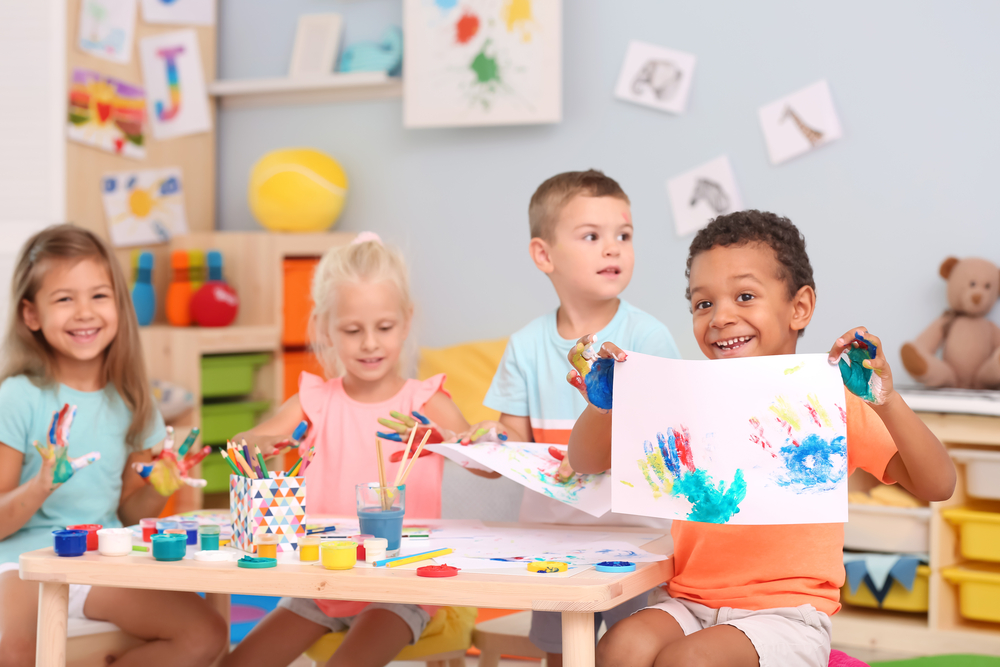
Object relays are another good way to teach preschoolers hand-eye coordination. Kids can pass a balloon or ball through their legs and above their heads to the person behind them, which is a fun and engaging task that helps improve physical skills.
Cognitive learning goals for preschoolers
Letters and numbers
Preschool is the time for young kids to be learning their letters and numbers, with repetition the key to success for understanding the alphabet and counting to 10.
Practice makes perfect, which is why preschool educators encourage kids to recite the alphabet, both on their own and within a larger group.
It’s also important for children to write out the alphabet, which will give them the foundation they need to keep learning the English language as they get older.
At the same time, children should be encouraged to count and answer questions about numbers, such as how many objects are in a group.
The more they practice, the more confident preschoolers will be in their letters and numbers.
Writing their name
When preschoolers have a good grasp of the alphabet, they can write their names, which is an exciting and essential milestone to reach before primary school.
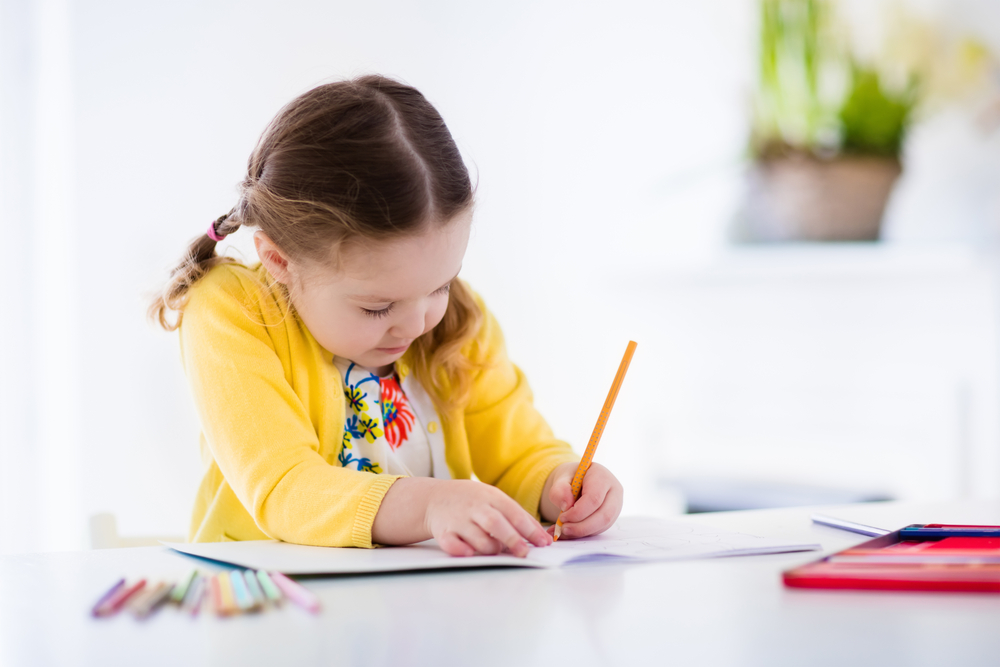
Preschoolers should be encouraged to write their names on all projects and paperwork to get them in the habit before full-time school.
As a key learning objective for preschoolers, name writing can be practiced both in the classroom and at home to get kids more familiar and ultimately more comfortable with this task.
3-step directions
While toddlers are still learning to follow basic instructions, as children reach preschool age, they can start to follow 3-step directions from their preschool teachers.
It’s good to get kids used to following directions and remembering a few key steps, such as putting toys away or picking up after snack time.
As preschoolers become more proficient at following directions, teachers and parents alike should add extra steps and praise children when they follow directions successfully.
Answer questions
In addition to following more complex directions, it’s also beneficial for preschoolers to meet learning objectives by answering questions.
Preschool teachers can ask children an endless array of questions based on their learning. Educators may also ask for their input on daily activities to plant the seeds of critical thinking during the formative early childhood years.
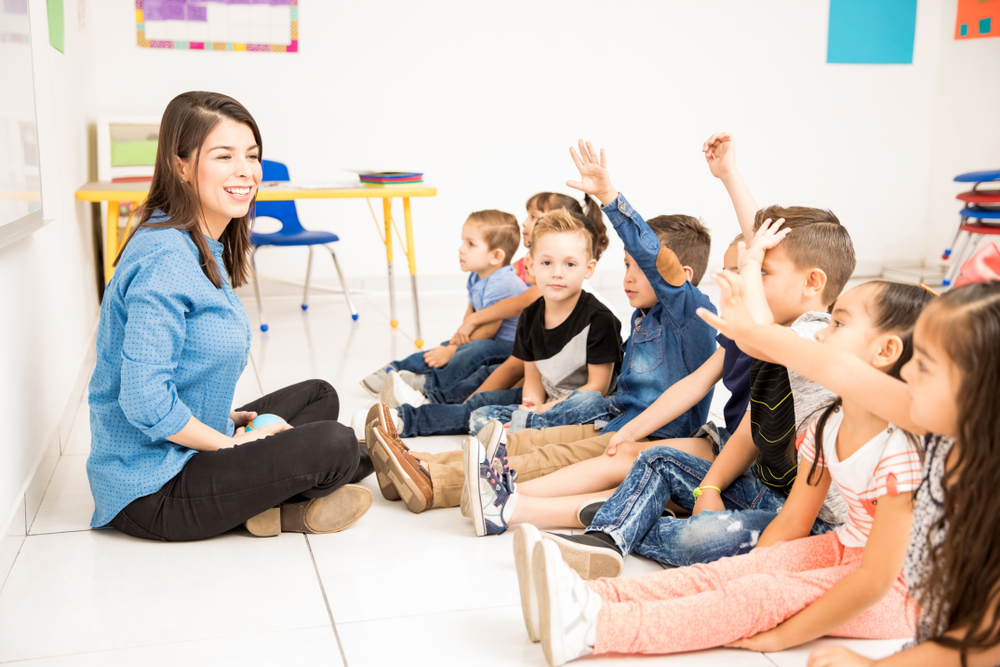
Children who can both ask and answer simple questions during preschool will be set up for success in kindergarten and beyond, with greater confidence to respond to questions and participate in class.
Group discussions
As kids go through preschool, they should be appropriately challenged to start thinking and speaking with more complexity.
Group discussions are a great way to engage preschoolers and instill confidence in public speaking from a young age.
For example, preschool is a good time to start teaching kids how to raise their hands, wait their turn, and then answer a question in front of their fellow students.
After all, group discussions offer preschool teachers a chance to see how students progress toward their social and language goals.
Even asking a few simple questions after storytime or prompting students to guess what will happen with a science experiment can make a big difference.
Some preschoolers are naturally more confident and extroverted than others, so group discussions are an excellent opportunity to give shyer kids the chance to speak up and feel comfortable sharing their thoughts with the class.
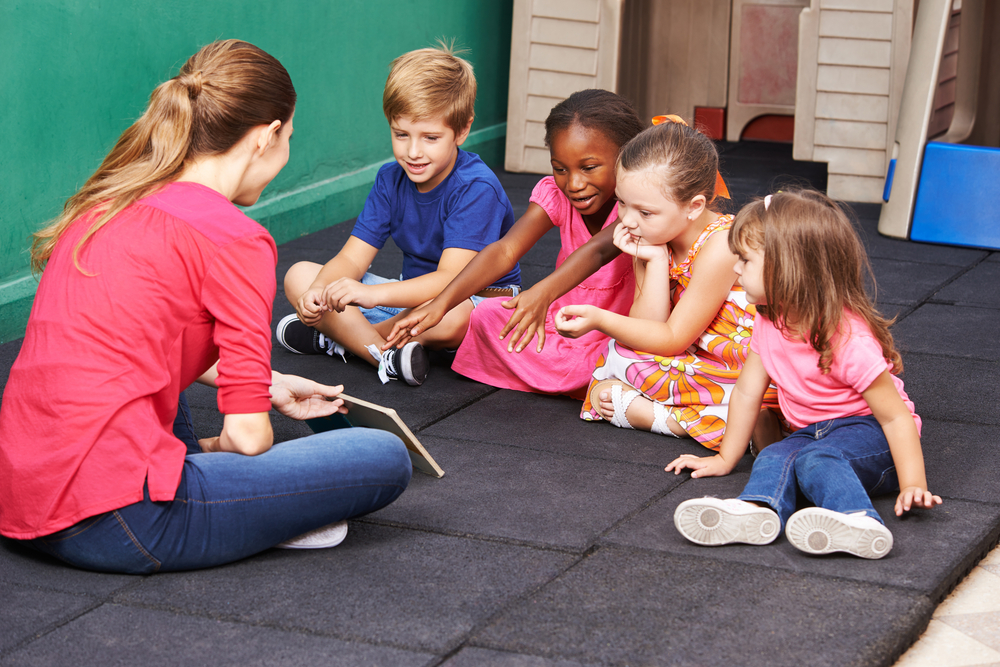
Social skills for preschoolers
Sharing and taking turns
Learning objectives for preschoolers should also consider crucial social skills, such as sharing and taking turns.
Preschool teaches kids the importance of taking turns with toys and activities, developing respect and teamwork skills in the process.
Patience is a virtue, and there’s no better time than preschool to start instilling patience in children.
Speaking of sharing, there are a few easy ways to do this in the preschool classroom, such as giving each student a turn with a special responsibility to start or end the day.
Also, every student should get a turn to speak and share their thoughts, which helps their peers learn how to be patient and respectful.
Following rules
Preschool social skills include learning to listen and follow the rules. While three and four-year-olds have a lot of energy, they need to understand how to channel this energy in a healthy way while respecting boundaries.
Things like being quiet when others are speaking, saying please and thank you, and picking up after yourself are key concepts preschoolers should pick up on during their time in the classroom.
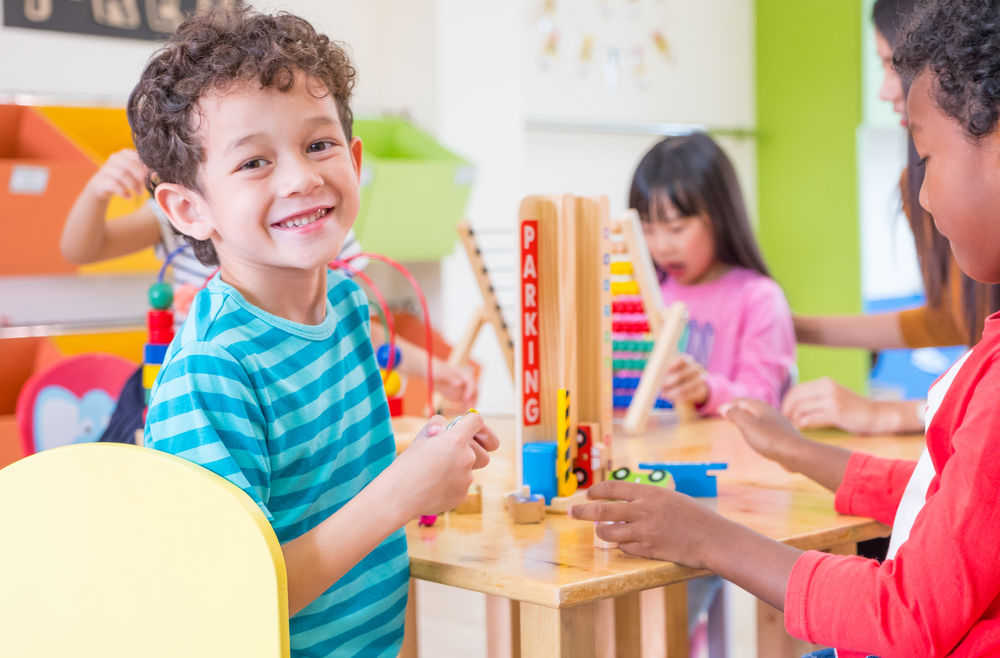
Every preschool may have slightly different rules, but no matter what, it’s important that children are viewed as individuals because some may understand the rules easier than others.
With the right level of encouragement and support, preschoolers can thrive as they adapt to an environment with respectful rules, which they will encounter all throughout their lives.
Healthy emotions
Emotional regulation is something kids develop over time, but preschool is a good place to start.
Toddlers, preschoolers, and school-age children are all known for impulsive behavior, but the earlier kids learn how to deal with their frustration, the better.
Many preschoolers are only children or have just one or two siblings, so they are used to getting a lot of attention at home.
While they are still cared for and looked after in the preschool environment, they definitely need to adjust to not having as much attention or waiting their turn.
It’s all part of emotional regulation and overall development goals during preschool.

